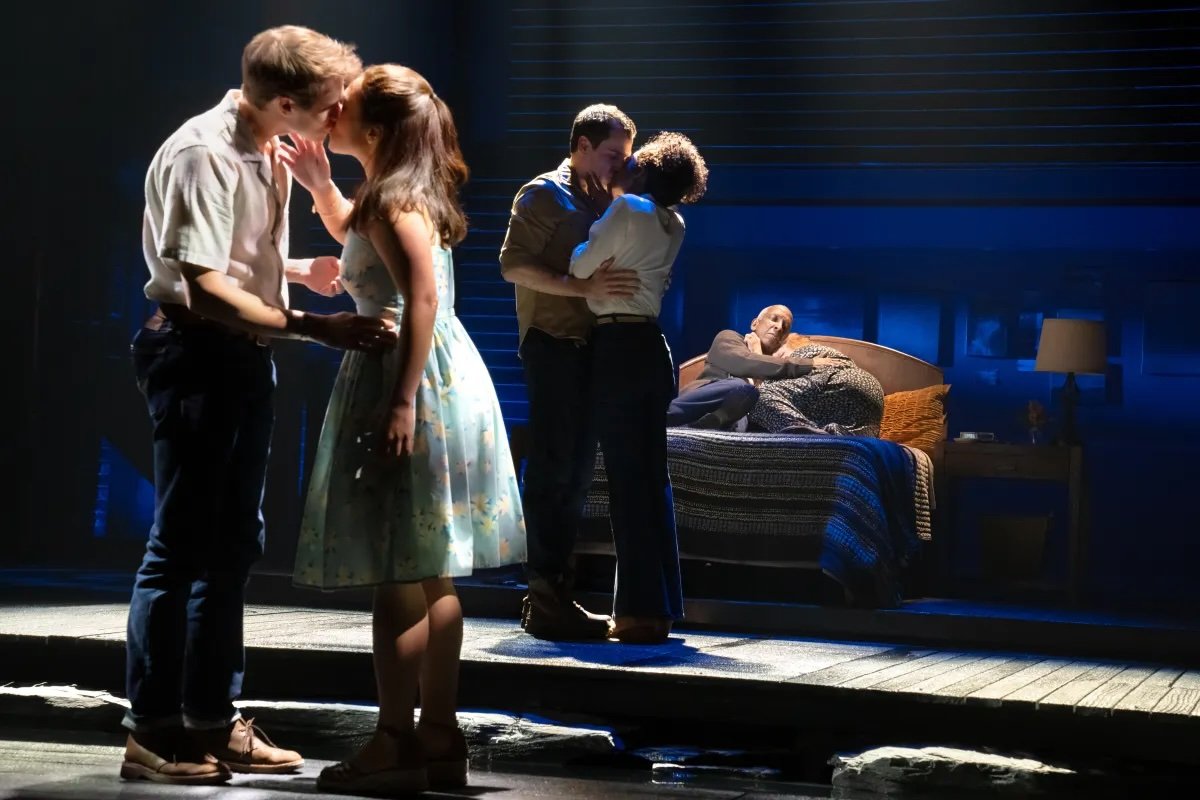When the cast of Suffs performed “Keep Marching” at the Tonys, I disliked it. It felt smug. Whether or not that was the song’s fault is hard to say. Self-importance has followed Suffs, which tells the story of Suffragist campaigner Alice Paul (Shaina Taub), from the beginning. Most of the marketing for the show didn’t have anything to do with the show itself, instead focusing on how “important” the subject matter is. I don’t have a lot of patience for that.
It wasn’t a false impression, either. The first act of Suffs suffers badly for the creative team’s desire to erect a monument. The story goes by in a flash, with little in the way of stakes or character. This is the leader, this is the friend, this is the wealthy one, this is the loose cannon, this is the quiet fresh recruit. Of course, there are stakes, but they’re abstracted, or buried. Importance and dramatic stakes are not the same thing. Suffs assumes you care rather than making you care.
It was hard not to think about Hamilton the whole time, and that’s not because both shows draw from American history. The score to Suffs is so thoroughly reminiscent of Hamilton that it made me more appreciative of all the things that show does well. At one point during the first act of Suffs, as I was being inundated with plot point after plot point spoken in rhythm over a sparse series of bass notes, I found myself thinking, “Wow, yeah, I guess Hamilton does have a lot of exposition.”
The bones of a great show are in there, I think, but they’re buried. Suffs would need to be less worried about relating facts, and more concerned with character. The central relationship to the structure of the first act is between Alice and the doomed Inez Milholland (Hannah Cruz), but the through line isn’t quite there. When Inez tells Alice that she’s leaving the movement to start a family, Alice convinces her to continue. That moment is crucial to everything that comes after, but it doesn’t hit. Inez doesn’t feel like she needs much convincing. Inez dies while campaigning in the midwest. She had a chronic illness that she’d known about for years. A version of Suffs in which the audience knows that while Alice tries to convince her to stay would probably be great.
As the show stands, it feels manipulative. I say that fully believing that the creative team is deeply sincere. Achingly sincere, even. When I saw David Byrne’s horrendous Joan of Arc at the Public back in 2017, the audience was greeted with a giant, hastily-assembled sheet that said, “Nevertheless, she persisted,” a phrase which had just entered the lexicon. I believed the people involved meant that sincerely. That was the story they were telling with their show. I also believed that they didn’t trust in the work to make its own point. Given how little meat is on the bones of Inez as a character, it’s hard not to roll my eyes at the decision to end Act I with a massive photograph of the real Inez Milholland filling up the stage.
The second act is much improved, with more attention paid to stakes and less of a breakneck pace. The show ends with an older Alice talking to a college intern. Much as Alice threatened the supremacy of the Suffs who came before her, this young woman can’t help but point out all the ways in which Alice’s beliefs about the Equal Rights Amendment are flawed. In that moment, realizing and accepting that she has inevitably fallen behind the times, Alice begins to sing “Keep Marching,” a song about the importance of doing the work for its own sake. Within the context of the show, it’s a great song. I’d even go so far as to say it’s important.
